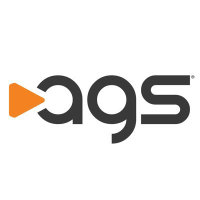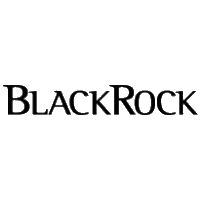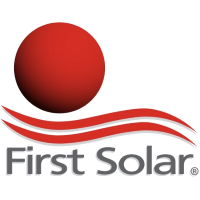Jastrzebska Spolka Weglowa SA
WSE:JSW

| US |

|
Bank of America Corp
NYSE:BAC
|
Banking
|
| US |

|
PlayAGS Inc
NYSE:AGS
|
Hotels, Restaurants & Leisure
|
| US |

|
BlackRock Inc
NYSE:BLK
|
Financial Services
|
| US |

|
MGM Resorts International
NYSE:MGM
|
Hotels, Restaurants & Leisure
|
| US |

|
Visa Inc
NYSE:V
|
Technology
|
| US |

|
JPMorgan Chase & Co
NYSE:JPM
|
Banking
|
| US |

|
Citigroup Inc
NYSE:C
|
Banking
|
| US |

|
Penn National Gaming Inc
NASDAQ:PENN
|
Hotels, Restaurants & Leisure
|
| US |

|
PayPal Holdings Inc
NASDAQ:PYPL
|
Technology
|
| US |

|
Coinbase Global Inc
NASDAQ:COIN
|
Financial Services
|
| US |

|
Alphabet Inc
NASDAQ:GOOGL
|
Media
|
| US |

|
Microsoft Corp
NASDAQ:MSFT
|
Technology
|
| US |

|
Amazon.com Inc
NASDAQ:AMZN
|
Retail
|
| US |

|
First Solar Inc
NASDAQ:FSLR
|
Semiconductors
|
| US |

|
Tesla Inc
NASDAQ:TSLA
|
Automobiles
|
| UK |

|
Cadence Minerals PLC
LSE:KDNC
|
Metals & Mining
|
Utilize notes to systematically review your investment decisions. By reflecting on past outcomes, you can discern effective strategies and identify those that underperformed. This continuous feedback loop enables you to adapt and refine your approach, optimizing for future success.
Each note serves as a learning point, offering insights into your decision-making processes. Over time, you'll accumulate a personalized database of knowledge, enhancing your ability to make informed decisions quickly and effectively.
With a comprehensive record of your investment history at your fingertips, you can compare current opportunities against past experiences. This not only bolsters your confidence but also ensures that each decision is grounded in a well-documented rationale.
Do you really want to delete this note?
This action cannot be undone.

| 52 Week Range |
22.01
44.91
|
| Price Target |
|
We'll email you a reminder when the closing price reaches PLN.
Choose the stock you wish to monitor with a price alert.

|
Bank of America Corp
NYSE:BAC
|
US |

|
PlayAGS Inc
NYSE:AGS
|
US |

|
BlackRock Inc
NYSE:BLK
|
US |

|
MGM Resorts International
NYSE:MGM
|
US |

|
Visa Inc
NYSE:V
|
US |

|
JPMorgan Chase & Co
NYSE:JPM
|
US |

|
Citigroup Inc
NYSE:C
|
US |

|
Penn National Gaming Inc
NASDAQ:PENN
|
US |

|
PayPal Holdings Inc
NASDAQ:PYPL
|
US |

|
Coinbase Global Inc
NASDAQ:COIN
|
US |

|
Alphabet Inc
NASDAQ:GOOGL
|
US |

|
Microsoft Corp
NASDAQ:MSFT
|
US |

|
Amazon.com Inc
NASDAQ:AMZN
|
US |

|
First Solar Inc
NASDAQ:FSLR
|
US |

|
Tesla Inc
NASDAQ:TSLA
|
US |

|
Cadence Minerals PLC
LSE:KDNC
|
UK |
This alert will be permanently deleted.






 You don't have any saved screeners yet
You don't have any saved screeners yet

Good afternoon, ladies and gentlemen. I'd like to welcome you to our meeting concerning the recap of information concerning Q1 2020. I am joined today by Artur Dyczko. He's the Vice President of Technical Affairs; and we have Radoslaw Zalozinski, who is responsible for the economics of our company, our CFO.
I'd like to begin with our presentation about the extraordinary situations. It's a little bit atypical when talking about the epidemic situation in Poland. We, as the mining sector, defended ourselves quite extensively against the pandemic-related problems. But as an organization, as soon as we received information that this threat does exist in Poland, we began our efforts immediately. We -- on the basis of a management board decision, appointed a crisis management team, and Artur Dyczko is responsible for that -- is the person responsible for the functioning of our mines. So this crisis management team consists of the main people in terms of our mining directors, people responsible for production. We also have individual divisions of our company represented in order to align ourselves to the current circumstances as they evolved.
Everything was changing. As you recall, in the initial phase, so the end of March, beginning of April, we didn't have any coronavirus incidents. The mines were functioning fairly normally outside of what was happening on the external market. And this is something that is -- objective beyond our control. So this crisis management team met 55 times so far. It's been meeting at least once a day, sometimes twice a day. It operates 24 hours a day, 7 days a week. We, as a management board, are working on holidays, including Saturdays and Sundays. The situation is extraordinary and this is the approach that we've taken to this situation. So Mr. Dyczko will tell you a few words about some -- a few words about some of the details about the development of the situation here in JSW regarding the epidemic situation.
What I can tell you is that it seems to us that the situation is under control. We have some experience. This will have far-reaching consequences. But as you understand, the mining sector is very distinct. It's very difficult for people to interact with one another -- not to interact with one another in various configurations. But we are trying to make sure that these meetings take place as rarely as possible, and we try to disinfect everything, ensure the safety of our employees. The employees are the most important part of our company and that's quite obvious. I'd like to ask for a discussion of the work of the crisis management team because this is a tough task. It's demanding work we have to do.
So I'll ask my colleague to take the floor at this time.
Thank you very much, Mr. Chairman. As Chairman Herezniak said, so the crisis management team was formed on the 13th of March, we've met some 50-odd times. So we have ongoing contact with the mines. And so Pniówek is our biggest mine. And I can say that today, that we're completing the process of taking swab tests with our employees. So 1,500 persons have gone back to work. We're very pleased with that. We're working very closely with the Voivodeship Governor Center. We'll talk about that cooperation a little bit later because we're part of a larger plan to overcome the pandemic here in Silesia.
We're very pleased by this because this cooperation is very important and it's also effective. I'd like to emphasize that it's effective cooperation. So we're completing the work at Pniówek. So employees are starting to come back to Pniówek with the exception of the employees who are responsible for maintaining the technical preparedness of the mine because this is a very important mine for us. Now organizationally, we are poised, following our discussions with the crisis management team and the Voivodeship Governor, part of our internal efforts. Because as the JSW crisis management team, we've analyzed the situation on the market.
And I should also mention that thanks to close cooperation with the various county organizations of San-Epi as well as PGG mine, so time and the rapidity of activity is very important.
So we've engaged in preventive measures. All of our employees, by the end of this week, will be tested utilizing immunological tests, which will enable us to do a screen test in consultation with the Voivodeship Governor. And so we're going to do also the genetic tests as well. Basically, we want to make sure that we're able to catch all of those clusters. We've got very interesting conclusions based on the situation that's happened in the Zofiówka mine. But what I would like to underscore here, and the most important thing here is that all of the contracts, and we'll talk about this later in the presentation, all of our liabilities -- commercial liabilities, obligations are being done on time.
Sometimes, I hear people from Warsaw and they might have a difficulty to understand this. Basically, the sun is shining here in Jastrzebie. You can ride a bicycle, of course, observing the rules of hygiene. Miners are tough people. They understand threats and hazards. We're treating this new hazard as one which is expanding the palette of experience our employees have at their disposal and we'll never give up. We'll never succumb to hysterics, which sometimes are perpetuated on the market.
If we look at sales of coal from Pniówek, at no point in time, was there any threat for [indiscernible] and [indiscernible] and I have talked about this many times, and we've emphasized this, and this is the most important thing that our relations with our customers are the most important thing. But as we cope with these threats -- so this is how we organize things and that enables us to cope with these and manage and navigate these waters. So we met on the same room on Sunday with the trade unions. So we, as a crisis management team, present the results of our work as a crisis management team to the management team, to the steering committee, including trade union representatives.
So we have a special team appointed at the Ministry of State Assets. So all of our activities, and I would like to emphasize here, and I will mention this several times when I have the opportunity to speak. Nothing bad is happening. Everything is under control. It's all a matter of our work organization, how we organize our work efforts. And I'd like to thank our employees here for their extreme determination and discipline. And I would like to emphasize there -- miners are disciplined people. And I'd like to thank all of our miners very strongly for their calmness and their resilience. And so we'll be able to talk about our Q1 results in the next conference, we'll be able to talk about our Q2 results. I think that would be it to begin. And of course, during questions, I'll respond to any questions you may have in our Q&A session.
So I'll go ahead and let us kick off the main part of our presentation. This is the presentation. This is what we are obligated to send to you. So I give it to you. This is JSW highlights. So if we look at coal production, we had more than 4 million tons. So this is up 4.4% compared to Q4 2019.
I'd like to dwell on this information for a bit. We've been able to move in the direction of coking coal. You'll see in our trading results, commercial results, if you look about, you see that there's important increase -- noticeable increase in coking coal production. So if we look at our coke production, you can see that the coke production is up 21% over Q4 2019. So that's 825,000 tons. So if we look at the market, the market was tough. So if you look at the Far East markets like India, China and other markets, the prices did fall.
The average metallurgical coal price fell by 3.5% versus Q4 2019, so it's PLN 488.19 per ton. If you look at the average coke price, well, the coke price falls more strongly. And so it fell to PLN 801 on an FCA basis. Unfortunately, this is an 11% dip. You'll see in our commercial results, we've been able to sell quite a bit of coke in Q1, we reduced our inventories. I think we had the record of the world. We sold more than 1 million tons. We'll talk about that a little bit later.
If we look at EBITDA, so we had PLN 48.6 million. So this is a decline of 6.2%. Our net result, negative PLN 208 million. Unfortunately, this is a decline of 281%.
If you look at our CapEx. So right now, we're trying to maintain this. Q1 is always a difficult quarter for us. We have to be aware that it's more difficult to speed things up in the first quarter of the year. So we had PLN 453.8 million CapEx. And so Q4 is obviously typical, but we were down by 52.5%. So that was the decline of CapEx spending.
If we look at our corridor works, so this is our main investment, we are on target. We have 21,112 running meters that we've actually tunneled.
So if you look at our results on production -- coal production and our inventories, you can say that the situation was much better than in previous periods. So we have coal production increases. We have changes in the mix between steam coal and metallurgical coal or coking coal. So these are enormous differences, as you can see in the results.
So we have an uptick in production by 4.4%, but -- so we had 3.17 million tons of metallurgical coking coal in Q1 compared to 2.6 million tons in Q4. So you can say that the increase is more than 19% compared to Q1 2019, but with -- in comparison with Q4, we can see that there's a difference of only 0.1% on corridor works.
If we look at the inventory of coal, as at 31 March 2020, we have more than 2.5 million tons of coal. So this is an ongoing, continuous problem, especially if you look at steam coal, and we have specific difficulties linked to our operations here. The mining cash cost, Q1, we have PLN 378.63 per ton. So this is pretty much how we kept things under control.
Now if you look at coke, what's most interesting is the comparison of the inventories. The inventories are the most important. Interesting thing, if you look at 31st of December 2019, we had inventories of 486,000 tons. We were more or less at the full limit of our ability to store coke. But at the end of March, we are down to 266,000 tons. So we sold more than 1 million tons of coke to external markets.
Perhaps I could move on to the market environment? As the CEO, I'm responsible also for sales. I wouldn't want to dwell in great detail, but if there are questions, of course, I'll dig deeper. So you can say that the steel production is down. But the biggest steel production falloffs are in Europe. So this is 10% down. So these are significant numbers. We can also see some big problems in terms of steel prices. Steel prices were falling by some 10% in various submarkets by even more.
If we look at coking coal spot prices, they're down. So spot prices are down by 25%. If you look at semi soft, the falloff is even bigger, 30%. If you look at blast furnace coke, you can see that the coke prices have fallen substantially. This is linked, of course, to steel production. So the price is down by more than 39%.
Now if we look at the steel market, perhaps I wouldn't dig down into the details because that would protract the length of our conference. But we can say that the European Union market has been affected to the greatest extent. This is our main market, where we get the best price -- command the best prices. And so our long-term partners have reduced their production quite drastically. So you can say that we have been able to sell to overseas markets. In the past, we said we're going to have to move away from the European Union market to overseas markets. And this is something that we've done. We talked about 50% of coke sales would be handled on overseas markets. This has a price impact and a cost impact on us.
So these market trends seem to be permanent or should be persistent over the upcoming periods until we know what's going to really flesh out with the coronavirus situation. So if we look at the coke or the prices, you can see that the prices are similar to Q1 but as the epidemic continued to expand, we had an extraordinary situation and unfortunately, especially if you look at type 35 [ hard ] coking coal, we can see that the decline was quite considerable.
So if we look at coke and steam coal prices, we have a similar situation. So if the market falls, coke is on the front line in terms of the problems. We've been able to sell more coke, but the prices were also declining. In terms of steam coal prices, we can say that the price level is rather stable, but the problem is with offtake by commercial power sector and we're delivering a certain quantity of steam coal to the commercial power sector. So if we look, first, it's Q4 we can see that the prices are down by some 20%, and then we have a 16.8% external. So we've done a lot of work. But our internal customers have had 21% more.
But if we look at coking coal, you can see the decline is down 3.5%, whereas with the others, 10% with comparison to Q4 2019. Now if you look at coke sales, what I said previously. We see a lot of increase in Q1, so we sold 81% more coke in Q1, that's why we were able to reduce inventory so strongly. Unfortunately, the coke price also fell. This is linked to what happened on the steel market and what's happening in steel mills in the European Union, and so we had a decline here of roughly 11%.
If we look at the revenues and sales of coke and hydrocarbons to external clients, we have made a big increase of some 57% between Q4 2019 and Q1 2020 in terms of the prices.
Let's go to investments. And I'd like to ask Mr. Dyczko to say a few words about production, and then I'll add a few words myself.
As you recall, ladies and gentlemen, we had the results for Q4 or for 2019. We had investment peak achieved in terms of our CapEx spending in 2019. So I want to draw your attention in terms of production to a few elements that are very important.
So how our core business is linked to coke? So we utilized these elements quite strongly at the turn of the year. If we compare what was happening in Q4 2019 to now, basically, we were playing this quite strong. We assumed that we were going to be able to do this now or never. So we were able to sell quite a bit. So we upped up our -- we increased our capacity utilization in coking plants, and we were able to sell coke in India, Vietnam and elsewhere, we felt there was an opportunity to fill the gap and we exploited that gap.
And this had an impact on our productions. So the 17% increase quarter-on-quarter in terms of coal production, it wouldn't have been possible had we not cooperated closely with JSW KOKS. We're very pleased, and we'd like to say hello to our cokers because we see that strength, the strength has to be cultivated and stabilized in order to be able to defend ourselves against these type of problems in the future. What's important, and we can see that in Q1, so on the 13th of March, when we appointed or actually, our CEO, Wlodzimierz, appointed the crisis management team. We had more than 330,000 tons prepared. And we've had much more meters prepared than we had assumed. So our preparations and the fact that we had gone through March and April, which were the most difficult period for us, we, of course, didn't know that this was going to happen, but we recognized at that time, in January, when we're making these decisions, but this is our only opportunity to act unconventionally, penetrate the market, be more active and start to sell more.
Of course, the market has evolved. And so the market situation is totally different. But what's important here is the flexibility and the efficiency of our operations. So if investments aren't done, this wouldn't be possible. We've talked about this. We've mentioned this to you before. On the 15th of May, Vice Prime Minister Sasin was here. We talked about the threshold of investments we want to perform. So in terms of the investments here in the group, I can speak calmly. Of course, we take a flexible view of everything, and we follow the market, observe it quite closely. We're tracking what's happening there. We don't see any problems with performing our investments. We will certainly not take any radical steps in terms of our corridor works.
Corridor works, in terms of Q1, we overstepped, we actually exceeded our plans quite strongly. So we had 30 longwalls cut open. So if we look at the crisis between, say, March and April, now May, we think that by June, we should be operating normally as a company. And I would like to emphasize this very, very strongly.
We will sell coal in line with our contracts. There are no threats to our ability to sell this coal. I would like to invite you to visit us in the company so you can see how we're completing the most important changes and modifications in the Budryk mine during the pandemic period. So Wlodzimierz and I would like to invite you to come and see us, and you can see what's happening in production. I'll come back to this.
In Q1 2020, so 80% of our coal produced was metallurgical coal. So we are sticking strongly to our strategy. I want to emphasize here, there's no happenstance here. There's no accident here. We presented our plan within the framework of our strategy, and our strategy is being executed. If somebody asked me, "What will JSW look like after the pandemic?" Well, take a look at our strategy. That's the simple response to your question. Nothing is happening. There's calmness. There's -- we're just doing our work day-to-day.
We've got tough people, miners and people working on the wall faces, and we've got our cokers. So you have to inform people, you have to spread the word about this.
In terms of our investments, in Q1 2020 compared to Q1 2019, we're up by some 15%. These are the figures. We're not discussing that.
You know very well what the end of the year looks like. We're the leaders at the end of the year. So in Q3 -- in Q4 of last year, we did investments for PLN 1.5 billion. All of the ones that were included in our strategy, and we're not stopping that. So I think there's a lot of involvement by the management team. Mr. Herezniak is personally involved in terms of our investments in coke -- in coking betters. We're listening to what our cokers are saying. We see their impact on our results. And it seems to us that we found the best solution which enables us to utilize this topic and it's true in terms of this subject matter.
So if we look, our mines, in terms of the investments, are basically doing corridor works and making sure that we take care of our methane, we utilize our energy resources. So we follow our plan in terms of our strategy, in terms of energy utilization. We're doing this on schedule, even if there's a time lag. We know what the situation looks like in Silesia, but I'd like to thank here all of the companies cooperating with us because they also see that working with us is part of the battle on the front lines.
So the investments in coking industry. In the coking segment -- well, maybe the quantity is not satisfactory to us. We prefer to analyze the investments a few times and have money set aside for that in order to do the investments effectively. Let's remember, the market's quite tough and JSW doesn't live in a vacuum. Many companies cooperate with us. We try to maintain a balance and support one another. So I think the 17% increase in investments in JSW in our mines and 15% in the group, this is something that we should consider to be satisfactory. We're vigilant about this. We're following our liquidity situation. But Radek, our CFO, will speak a little bit about that subject. Thank you.
So I'd like to ask our CFO, to say a few words about our financial highlights. Can you hear me?
Yes. So what we've heard thus far has had an impact on our economic results as a company and as a group. So our sales revenues in Q1 2020 were down by PLN 0.5 billion compared to the period from before. This is a result of prices. But it was up by 8.6% in comparison with Q4 2019, but down PLN 0.5 billion from Q1 2019. If we look at EBITDA, we have PLN 48.6 million. This was more or less similar to the result that we had in Q4 2019 once you exclude one-offs.
So it was much lower than -- in this corresponding period of last year. So if you look at the -- well, we had to pay a dividend. We also had the closed-end investment fund. I'll talk about that in a few moments. But we also have current provisions as well as liabilities. This is network -- working capital. And then if we look at net result, well, of course, we're not satisfied by this net result. It's substantially lower than our expectations and your expectations.
The pandemic was the primary contributor. The pandemic affected us earlier. In Europe, we saw this in the end of February. It started in Italy, as you recall. The pandemic exerted an -- impact on us earlier at the end of last year in terms of distribution of some of the subassemblies to the automotive sector in -- which is in Western Europe and in Poland.
Well, the distribution of means and semi-finished funds of our assembly -- subassemblies because of the lockdown that was taking place in Asia had an impact on us earlier. So all of the major automotive companies, we could list them, but we could say that each one of the companies operating in our market closed its plants. And so we saw an unprecedented decline in purchase orders coming from the sector -- automotive sector, and this had an impact on the coking coal market.
If we look at the impact of the various segments, we've heard that coke sales were record-breaking, was up strongly from what we saw in 2019. You can see that on the waterfall, and that's reflected here of the EBITDA evolution.
So we had a negative impact of steam coal sales volume, down 46.3%, so it's PLN 128 million. The average coking coal price was down. So that had an impact. So then the EBITDA, without nonrecurring events, was PLN 48.6 million. Then the impact of other, we didn't have a reversal of the Radlin coking plant. Well, in Q4, we've had a reversal, which had an impact, a positive impact. So that's the one-off event that improved results in Q4 2019, but it didn't take place again in Q1 2020, and that's why we have a negative impact compared to Q4 2019.
So if we look at the operating segment. So we had a positive impact of PLN 25 million on the coal segment. I'll say more in a few moments, but we had the coke segment, which had a change of PLN 139 million, then we had consolidation, eliminations, which is linked to hedging activity, so PLN 103 million, but the exchange rates moved up quite strongly between dollars and polish zlotys as well as between euros and the zlotys. And so this had an impact on the valuation of our financial derivatives.
One of the most important slides to you, when we talk about costs. So the cost of labor were higher in Q1 2020 compared to Q1 2019. This is, above all, as a result of taking over the PBSz company in May of last year. So their employees increased the number of headcount we have. We had methane drainage efforts as well. But we can say that the increase in the headcount here will exert a positive impact on us. We already see that today.
So we can say that our mining cash cost was positive because we had a larger volume of sales. So this was not something that was a major problem for us. If we look at our profitability, so we have a negative net result, which is part of these estimates. Well, that negative result has a negative impact on our ROE and ROA. If we look at cash flow, one of the things that's the greatest interest to you is the major CapEx. Well, they reduced our cash balance as well as -- we had the dividend of PLN 200 million. We've also redeemed some money from the stabilization fund as a result of the decline in sales revenues from our major products.
So the situation is under control at present. If you look at that financial debt, well, we see what's happening in the steel market and the coking coal market. And then it's, to a lesser extent, it's impacting other areas of our activity. So if we look at our net financial debt, we can see that having in mind our closed-end investment fund and the redemption of investment certificates there, we had some change in borrowings -- loans and borrowings. And so we had a loan of PLN 460 million. So this had an impact on producing our net financial debt position. That would be it in terms of the most important economic results, and then we'll happily to respond to any questions you may have.
So we'll start with questions posed by Pawel Puchalski from Santander Bank. Puchalski has 6 questions. I'll read the first question. What sort of discount should we anticipate in Q2 of this year for coking coal?
The situation is changing. Each one of us who observes external published prices -- well, there is major decline in spot prices in March, we were -- if we talk about the best premium coking coal. So prices were down $150. Right now, it's between $110 and $120. So we can say that impact is present. Because of constraints in production in the coking business, it's hard to talk about a trend because volatility is quite extensive, so we have sort of a flattened period. So it's around $120. And so this level -- price level has been supported for several days. So once the economies are starting to be unfrozen -- they are starting to be unfrozen. So there's a chance that prices will improve from the level we currently have. But the situation doesn't depend on us. And it's a matter of restarting the automotive sector.
We have some information, like the Volkswagen Group is commencing production and then later, it stopped production. And so this is quite important. And so there's too big of a margin of error here. So I think we're above the bottom.
Thank you. Question number two. Have negotiations begun with the trade unions about reducing bonuses and salaries for several years?
In our press release, we provided information about the suspension of pay regulations. So this status is still in play. We're in a difficult situation. It's a difficult situation also for our employees. We don't want to evince -- or any unnecessary talks. Once the epidemic ends, then this is going to be the subject of our discussion.
Then question number three. ArcelorMittal closed operations in Poland for 3 months. Is this a strong negative sign for coke and for coking coal?
It's not a major buyer of coke from our group, but it is an important buyer of coking coal. And I can say that the coking coal offtake is at a quite decent level. So they have the Zdzieszowice coking plant, it continues to produce so -- coke. So we're producing coking coal on -- well, they had more episodic transactions and small quantities and we talked about the other subject.
Then question number four? What will be the impact of the pandemic in May? Will this be a decline of 339,000 tons as in April? And how will this impact Q2 2020? And is Pniówek producing a small amount of coal or is it not -- is it stopped?
So it's a shame I don't see you, Pawel. When we meet, we'll be able to say more and my response is in this spirit. We don't know how long the pandemic will last. But one thing I would like to say, from our point of view, as the only large and safe supplier of steaming coal and -- steam coal and coking coal for Europe, I think Europe will perceive this. Here we are, dear Europe. Stability is part of our genetic code, ladies and gentlemen.
So on to the different question. Well, Pawel, I'd like to call your nerves. We reported, and in July, Radek will release the production report. Right now, the most important thing is to protect our employees, our most important asset. These people are working. They're working well. Our off-takers are happy that we're working, and there are no problems with the execution performance of our contracts. We don't talk about our forward-looking plans. So you don't know what our plans but look like for the future. We know what they look like. So at this point in time, looking at the current situation linked to the pandemic. So the CEO, Mr. Herezniak and I attend the crisis management team meetings with the Voivodeship Governor. We do not see any major difficulty here. We've utilized this difficult period in order to reorganize our works, just like when being at -- during a war period. So we're pulling together our ranks, we're reorganizing, so we had 30 long walls. So we've started to close down, retool in order to move into June.
So the production report will be released in July, which is not far away, and you'll see the details. And I think what the CEO mentioned and the CFO showed with numbers, we are selling. If you want to buy more, we would invite you, we're here to sell the products.
Let me add one comment. If you require -- remember the situation from a year ago, we were working on 20 longwalls. Today, we have 30 longwalls in operation. Think about the efforts that we extended or expended to increase our production by more than 30%.
Here, let me interject for a moment. In terms of Pniówek, we didn't stop any of the work. So it would take months to reopen a mine once it's closed. Look at the technical preparedness in that report. So the 30 longwalls we have will -- but I think as we have 28 in operation right now, sales are key. We have coal. We're prepared. If you want to buy coal, come and talk to us. We've got good prices for our product.
Thank you very much. And now question number five. If we look at coking coal and coke sales reductions in Q2?
I have to respond the same way. We'll present this data in July because these are things that are happening right now. And what I said previously, the situation is changing quickly. We have different signals, sometimes the signals are at odds with one another from the market. The company is doing everything it can to sell coal that we have on our coal heaps. Right now, we're selling a large amount of coal directly from the coal heaps or coal storage yards. So this just confirms the work that we're doing now.
And the last question from Pawel Puchalski. What sort of proceeds should we anticipate for the company to receive from the government's anticrisis shield and where would they be posted?
So we classify or we are eligible for receiving this government aid and we want to utilize the: A, be provided by PFR, the development fund as well as the Polish National Bank, so BGK. We cannot forget that all of the analysts and economists say, we see that industrial output is down by 25% in the month of April. So all of this will have an impact on these institutions, and there's certain rules in terms of the ability to utilize this shield. And there's some liquidity gaps I'm not able to say right now what sort of proceeds we should expect to receive. While, certainly, as a management team, we're working strongly on being able to utilize these instruments. We're in the midst of a crisis. No one has any illusions at the global level, at the European Union level, and the member countries of the European Union where we're sending our products. With the lockdown, the pandemic will cause the GDP of various countries to fall, and many sectors will report lower results. And that means there's a limited amount of funds to be spread around.
And so certain criteria will be used. And if we look at the stakeholders of the company, we can say that there's a lot of activity in terms of providing assistance, utilizing the crisis shield. We've utilized the first crisis shield. So in terms of the payments to a local administration and the social security institution, we've got those deferred payments. So we utilized shield #1 and shield #2, the maximum is PLN 550 million. That depends on the factors I mentioned previously. I'm not able to respond to the question where these funds would be booked or posted. So I think this should be treated as a loan because this shield is alone from the Polish development fund, PFR. A portion of it could be forgiven, and this will probably be treated as a financial flow.
And we have 4 questions from Andy Jones from Wood & Company. And the first question: what is the expected production in the full year? And what sort of scenarios does the company see for the execution of the production plan?
Well, we don't talk about the future. We don't give forward-looking statements, especially now. None of us would have thought we would have to meet this way again. So looking at last year, and having in mind the investments we've made, well, this is a benchmark or a watermark of what we'd like to achieve. But let's -- sales are the most important thing for us. We've got coal, good quality coal. And we're able to produce this on a sound footing and extract that from under the ground. I wouldn't want to speak too much about the forward-looking plans because it's not something that's predictable. We're talking about predictability right now. We know that we're going to do what we're capable of doing. So we're able to mine coal and produce coke, and we can do that on a stable footing.
Then we have question number two. Please present the production mix. And what sort of impact does the Pniówek situation have on the mix?
I really wouldn't want to dwell too much about Pniówek. We're a predictable company, and we're very consistent. Take a look at our strategy and what we've written in the strategy. If you look in our earnings conference report, what's happening in production, Q1 to Q4, of last year in 2019. So you can see that right now, that metallurgical coal represents 80% of our output. And if you look at our investment process in the coal preparation plants, I can confirm this, that 80% of the mix is coking coal. And so we report the situation in Pniówek very strongly. And I mean, we're doing this transparently. So you can look at our website, and you can see how much information we're providing, it's all very clear. So shipping, the trains are departing Pniówek with coal loaded onboard.
And then we have question number three. Will there be reduction in CapEx this year because of the expected soft results?
I don't know why people think we're going to have soft results. Why is that an expectation? Our CFO is talking we're part of a bigger game. But ladies and gentlemen, I would like for you to draw attention to one thing. And you have to look, you have to pay attention to this one thing. In 2017, when we prepared our strategy, and we wrote things in that strategy in 2017, we had certain instruments written into that strategy.
I personally communicated this to you in the beautiful stock exchange floor in Warsaw with that nice screen in the back. This would protect us against the difficult situation on the market. Right now, you are very well aware of the situation in JSW over time. Had we not had this investment fund at our disposal, at that point in time, we made the decision that we would be very consistent and unwavering in our execution. And we're following the plan that we wrote down. In order to follow this plan, just like Mr. Herezniak said, to have 30 longwalls. We had to cut a parceled amount. So 10 kilometers, more tunneling we did in 2019 year-on-year, then 10 additional kilometers that had been originally planned. So those phases are cut, parceled, and we're able to extract coal from them.
So we have to continue following our investment plan to do that. Of course, we scrutinized the market situation, as the CFO and the team he has are tracking the situation. And we're scrutinizing some of the investments, but we know very well. And you're very well aware that we're a mining company, a commodities company, a raw materials extraction company. And so basically, what's happening on the stock exchange is part of our overall market environment.
We can't fall prey to hysterics. We have to continue executing our plan. And that means this year, we have to prepare underground mining pits this year. So in Q1, we did 2.5 kilometers more than we had planned. So our employees are performing our strategy very well, and this is where I'd like to stop our discussion.
So the CEO and Deputy Prime Minister spoke at the press conference, and in the region, this is -- what we're doing is considered to be a mark of stability. So corporate social responsibility is something that we underscore.
And now question number four. What are the expectations, your expectations in terms of mining cash cost and cash conversion costs?
I'll try to respond to this question. Of course, much more will depend on volumes. So if we're able to meet our production targets, we can say that the cost will clearly be under control. Unfortunately, we don't know the impact to repercussions or the time when the pandemic will end nor what's going to happen with the virus.
If we were to know, if we were to be convinced that the pandemic would come to an end within the next 2 weeks, then I could give a pretty good estimate that we would have everything well under control because everything would be in our hands, and it would be totally under our control. But if the virus returns in the fall of this year, or if we have more people sick, it'd be very difficult to respond to that question right now. We're spending a lot of effort as a management team, as employees. And I would like to praise the financial team in terms of cost control. So this is our top priority, and we're doing a lot of operating work, and this is our role. As a company listed on the stock exchange, as a production company, we're trying to track all of these elements closely.
Somebody asked what the discount price -- the discounted price will be for coking coal? We think it's going to be a single digit discount figure. I had this SMS, somebody told me that I hadn't responded to that question in terms of what the market is showing.
Now we have a question which has been put forward by several analysts. One of the analysts is Rafal Wiatr from Bank Handlowy and also from PKO BP and Marcin Górnik from Erste Securities. The question is, please explain the loss of PLN 77 million on the financial derivatives? And what was the reason for that loss?
When I hear about loss on financial derivatives, I have a mental problem with that question. But if we talk about a negative valuation, I addressed this previously. We saw FX rates on the rise between the dollar and the zloty. Right now, we have record-breaking high levels in recent years. And we've been following our hedging policy. And when we saw that the exchange rates go up, that's what happens in hedging accounting, and that's the reason for this. I addressed this question a little bit earlier. If not, please send your questions to Investor Relations, and we'll try to respond to that in greater detail.
Now we have questions from Mr. Lukasz Rudnik from Trigon Brokerage House. He has 6 questions.
The first question. The company hasn't talked about reaching an agreement with trade unions about payments -- copayments due for the -- in place, what sort of monthly level of savings do you anticipate in this subject matter, in terms of copayments to employee salaries?
We're not -- this question is very -- or the answer is very simple. We're not trying to get that.
Then we have question number two. What is the percentage? If you look at January and February, what is the percentage of output? And what's actually happening right now in Pniówek?
We're coming back to this question. Perhaps I'm boring. But let me tell you, so that Radek is looking at me, and I can't say anything different from -- we'll give you the details in July.
But let me revisit what I said. And we, in April, gave a press release. As you know, the procedures we follow, we were the first people to implement these procedures looking at mining output, since health of our employees is the most important and it was easier for us because we knew that we had inventories and we know the capabilities of our mines, and we're able to fill the gap. We had to introduce a 3-shift system. We had to have smaller numbers in our staff. So of course, there is a dip in production. We're pleased that the wall faces are being utilized, and we've used this time, basically, to retool our longwalls. I don't want to speak about individual mines. You know what things look like.
We have Knurów-Szczyglowice mine, Budryk mine, Jastrzebie-Zdrój, Pniówek. All of our mines are fulfilling their plans and targets. In July, we'll come back and give you detailed production reports.
Then we have question number three, if the market situation doesn't change, and nothing suggests that it will change, would the company, in Q3, utilize all of the money it has in the investment fund?
It doesn't seem to me to say that the situation won't change with 100% certainty. So I see there's a lot of the -- a lot of short-term thinking on the market. I think we should think about things a little bit longer term. The crisis is a fact. The company will conquer this situation strongly. And so in coke, we're the major leader in merchant coke sales in terms of economic trade. So we'll be well situated on the market if we conquer the situation in terms of our ability to deliver on time.
So, of course, in Australia, in open pit mining, they're able to have much lower costs than we are in deep shaft mining, but the situation we have right now is -- shows that the sector isn't fully financed. So the financial sector doesn't understand the difference between steam coal and coking coal. That means the financial sector is not investing in coking coal. So all of these things taken together will poise us well. It's capital-intensive, so the capital payback period is long. And so we have pretty big volatility compared to other assets in terms of ROA.
If we look at the other part of the question about our investment fund, this investment fund is a savior of sorts to us. So if we look at the ability to leverage our operations in the financial sector, this is something that's quite important to us, to have that investment fund. It's a truism, but that was the whole reason it was created. We created it in order to be able to invest. And if this need exists, then we'll be able to tap into it and to balance our cash needs.
So I think I can say that if there's a need, we'll tap into the fund; if not, then we'll try to rebuild that fund. It has worked well for us to have it.
Thank you very much. And then question number four. Have you talked about taking over a coking coal mine from PGG?
I'd like you to look at our strategy. Above all, we're focusing on our own resources, and this is not the direction we're following.
Thank you. And question number five. What is the work of the European Commission look like in terms of the raw material strategic list? What is the chance that coking coal will be classified as a raw material on that strategic list?
We're talking only about maintaining our position on that list. I think we've done everything we can as a management board to persuade our colleagues and friends in Brussels. We've utilized all our means of influencing them. Well, Prime Minister Emilewicz and Deputy Prime Minister Sasin have -- and Mr. [ Patoka ] has given us a formal endorsement because of the extraordinary situation, the list hasn't been announced. We don't have that knowledge. We're trying to monitor what's happening in Brussels, of course, but it would be difficult for me to say exactly when that list will be published. We hope that we will continue to be on that list and will be a permanent part of that list.
Thank you very much. And then the final question put forward by Mr. Lukasz Rudnik. The company has utilized in full the space it has in its coal yards. Where are you storing coal now? What is the maximum capacity of these external coal yards for transport cost to be effective economically?
Where do you get this information that we've utilized all of this based on coal yards? Above all, we utilize -- we have our own coal yards, and we have these coal heaps net to the mine -- next to the mines. Well, the plans that the management has approved and what the mines are doing, so safety and continuity of our mines operation have been secured.
Then we have the coking plants. We have to -- I'm going to invite you at these conferences. I think you should look at the full cycle, moving from the mine deposit all the way to the sea site. So this is something that's going to be more and more important. So we're going to work in the ports, putting coal on ships, loading it on ships and sending coke to China and to Vietnam. This is quite interesting. This is an element that's quite interesting to us.
I'm responsible for production right now. And we've looked very strongly and taken an extensive inventory. We have approved this at the beginning of the year when we made the decision to utilize the full 100% capacity of production in our coking plants. We have a 3 S strategy. So we start with strategy. What has to be effective in order to have stability. And this is something that we follow. So having this in mind, all of our efforts have been planned in such a way to ensure business continuity, production continuity. This is very important in terms of how our crisis management team has operated. And I have the pleasure of running that, and I'm able to work with wonderful people to ensure that we have operational continuity. So I'd like to calm your nerves that this risk doesn't exist.
We have several questions from Agnieszka Barteczko from Reuters. Four of the questions have already been addressed previously, so I'll ask the one that stands out. Is the management board thinking about issuing a rights offering?
The response is short. The answer is no.
The next question, put forward by a journalist, [ Arkadiusz Biernat ], from a newspaper. What will -- I'd like to speak shortly as Wlodzimierz. Well, what do the mines intend to do after the pandemic ends?
We'll continue to execute our strategy. So if you understand what we're doing here as a company, take a look at our strategy. Everything has been defined precisely. So let's combat this idea that there's going to be a revolution here. We have to master certain new things and then go forward. The miner has always been, is and will be an advocate of progress because if you don't follow progress, then you won't be able to move forward. So I'm very calm.
If you look at our strategy, as I said previously, how important investments are, the investments are being done. And as Radek, our CFO mentioned, what's very important here. Stability is the name of the game. In Europe, we're seeing as a stable producer of coke and coal. And even we'd like to move into Europe. We say, "Hello, Europe. We're here." We're very pleased that our business partners continue to look at what's happening here in JSW. Our partners from Germany, from Austria, Wlodzimierz is talking with them quite frequently. Nothing bad is happening here. People come to work. They go to the store, they do their shopping, they go to sleep, then they go to work again. They extract coal. They produce coke and they load wagons, train cars and they sell it.
What will be the impact of the coronavirus pandemic on us? Could we draw some conclusions at this point? Do we think there's going to be a short-term or a long-term collapse of the sector?
We continue to reiterate one thing. Coking coal is a chemical product. Perhaps our colleague from [indiscernible] was thinking more about the coal sector. We're not thinking about what's happening in the rest of the coal sector. I don't think that's quite obvious because we have a chemical product. So we're talking about extraordinary efforts. We're thinking about what's happening right now. It's somewhat reminiscent of a battle or a fight. We're going to go to a conference that's called by the Voivodeship Governor, it happens once a day, sometimes more frequently.
Take a look at our strategy. Our strategy, and we wouldn't allow ourselves not to execute our strategy. So the response is quite brief to the journalist. We don't see that threat. Of course, we have certain experience from our day-to-day operations. And we'd like to draw some conclusions. Look at it statistically. Perhaps in the future, how we -- this will inform our behaviors because there may be a repeat performance here.
So many people are involved, starting from the government and then the local government, then we have the authorities, our regional and county authorities and the sanitary authorities. All of these people are meeting up with the situation for their first times in their life -- for the first time in their lives. But I can say, perhaps this won't sound very good, but I think we've shown ourselves to be competent at fighting this problem because in January, none of us had any experience here.
But I think we've been exemplary in our approach. Even in China -- even though in China, this was already happening, nobody had thought that this would spill over, all over into Europe as well. So JSW does not assume that it will be unable to implement the strategy announced some 3 months ago.
So as I read, somebody thinks that there might be a collapse out there. Well, one classic thinker said, "What doesn't kill us will make us stronger." Well, I can tell you this was most certainly not kill us. So I'm very calm.
95% of our employees don't have any symptoms whatsoever of coronavirus, and so these are tough men who don't even know that something had attacked them. But we're responsible and accountable to people. So these miners don't live alone, they live in communities. We're listening to what the Governor is saying. So people -- miners are like military men. So we listen to what is being told to us by the Governor. So he -- the Voivodeship Governor, the Regional Governor, because he's sort of the leader of the region. We're listening to what all of the various levels of the -- sanitary authorities are saying.
I don't see any difficulty at this point in time. The company has utilized some of its financial resources. We're supporting at local authorities, local authorities are supporting us. We've got these swab buses. So 2 of the 30 respirators in [indiscernible] and [ Dombrowa ] and so on and so forth have been purchased by our foundation. We're close to our friends, our medical professionals. So I'd like to thank very cordially our miners, their families, all of the medical professionals, the employees of the San-Epi authorities. We are all working hand-in-hand to implement this plan that has never been executed. Basically, this is baptism by fire. But there is real calmness here.
I would ask our friends from Warsaw to speak out about this. Sometimes we hear, as a management team, we have our meetings, and we hear these sentiments of hate. But these miners from JSW, from PGG, from Tauron, are here, will be here, and they will rescue the rest of the people. So we're following our strategy on a stable footing and effectively.
Thank you very much. And then we have another question. How is JSW preparing for this situation? And to what extent will it actually stymie the plans of the company?
Well, we can say that the situation means that we have to focus on several important elements. You know, based on our statements, that we're focused as a crisis management team, as a company, we're focused on countering the coronavirus. We're looking at the costs, we're looking at the liquidity of the company. We're looking at our ability to sell on this market because without revenue, we won't be able to achieve any of -- others of our strategic objectives. So we're fully concentrated on doing these things.
In terms of stymieing our plans, well, we've already informed you of some of them on the 12th of May, some of our mergers and acquisitions plan, we had to suspend them. So we're focusing on our own company and enlarging our ability to extract more within the framework of our capacities.
Well, some of you might have questions, and you'd like to ask questions of us. Because of some time limitations, we would like to ask you to send these questions to our Investor Relations team. We're sorry that we don't see you face-to-face, and we can only speak to the camera, but we do hope that in the results conference in August, in -- for the Q2, we'll have the opportunity to see you at that time. So thank you very much.
I would like for you to treat all of this that we're all miners from Pniówek, amongst others. So when you talk about this there in Warsaw, think about it. So if you want to come and check us we visited the Budryk mine yesterday with Zdrój. So the sun is shining, come and join us here in Jastrzebie and we'll be able to see everything.
So thank you very much.